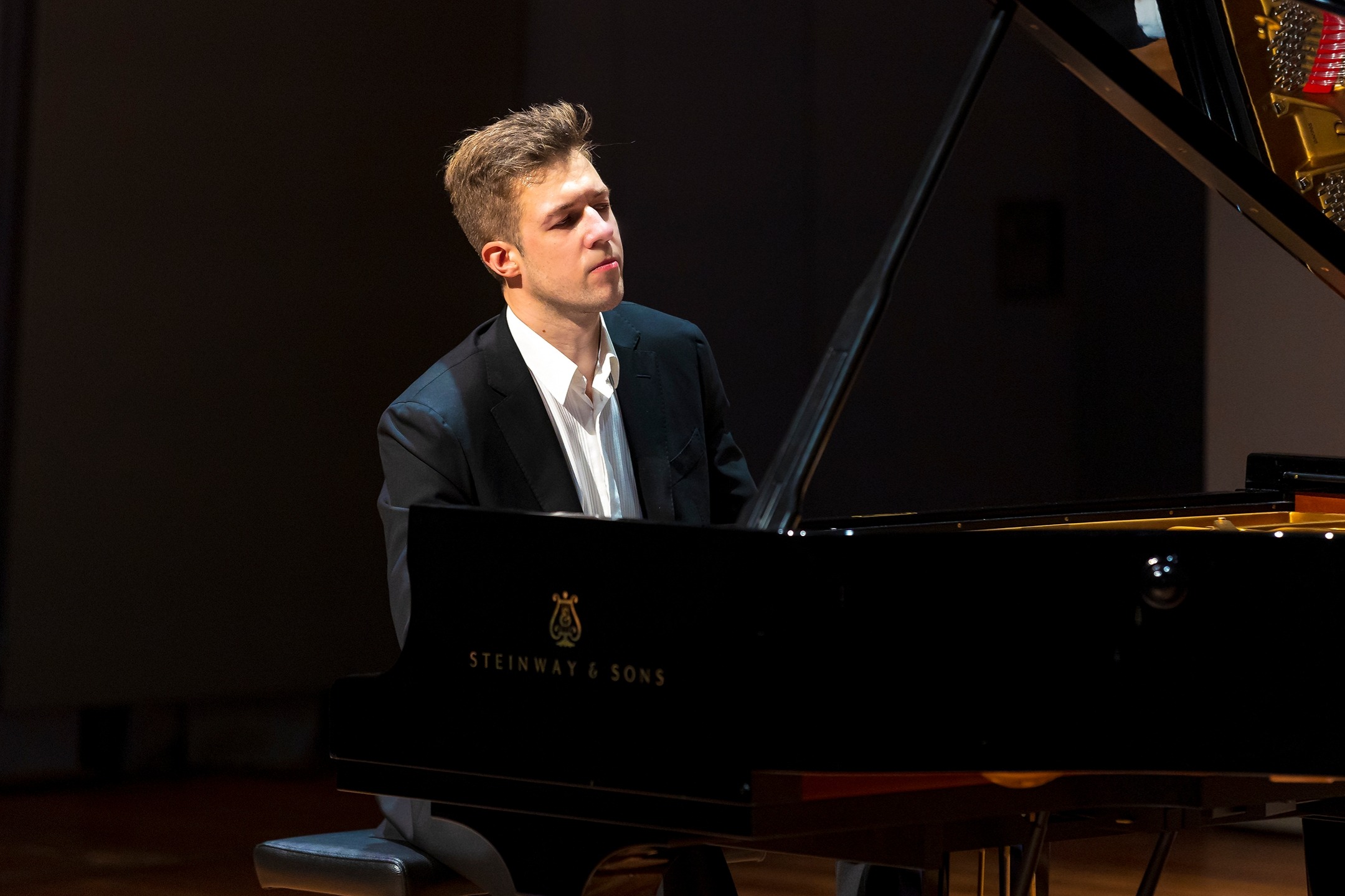Lübeck: Archive – 22.05.2022, 17.37: The concert of the Possehl Music Prize winners 2021 could only take place now due to Corona. For the 58th time, young musicians demonstrated what the Lübeck University of Music has to offer: Two pianists and two woodwind players came first in the competition. All four also documented the internationality of the institute. In the Great Hall on Saturday, President Prof Rico Gubler welcomed a large audience and thanked the Possehl Foundation for its many years of financial support.
This concert was also dedicated to the memory of Ukraine, as jury chairman Dr Ole Krönert explained in his speech (“Music as consolation”). He referred to the cultural responsibility of the Possehl Foundation and thanked Prof Gubler – who is returning to his native Switzerland after this semester – for his successful work in the Hanseatic city. However, the success of the competition participants is also a credit to their lecturers.
Award winner Strahinja Pavlovic not only demonstrated optimal interaction of finger technique and breath in Leonard Bernstein’s clarinet sonata, but also felt at home in the high-contrast syncopated style – especially as Tamami Toda-Schwarz carried him on her fingers on the grand piano. The third prizewinner, oboist Yusuke Morita, moved in pure Romanticism in the three Romances by Clara Schumann, spanning the melodic arcs with vigour and having an excellent accompanist in Christian Ruvolo. His student Rodolfo Focarelli received the prize for the best student piano accompanist.
Professor Konrad Elser, from whose piano class great talents continue to emerge into artistic practice, was the double winner. In the first movement of Alban Berg’s Sonata in B minor op. 1, Yusuke Morita (2nd prize winner) succeeded in expressively tracing the measured movement in the (not yet quite so) unwieldy work – and, like all the others, proved that technique is not an end in itself but a means to an end: technique is not an end in itself, but a means to optimal interpretation.
1st prize-winner Augustinas Eidukonis was convincing with this: first in Beethoven’s “Pathétique” Sonata op. 13 with particular calm and clarity in the Adagio cantabile and at the acclaimed conclusion in two Debussy preludes, where he made the “Feux d’artifice” sing amidst all the fireworks.
